By Natalie Smirnoff
As adults we are taught to keep our passions on a low simmer. Be interesting enough to engage in conversation but don’t overwhelm people with excitement. I say that’s a waste of time – especially when bugs are involved.
I have been interning at the Izaak Walton League for the past three months while I finished my degree in Environmental Science. During that time, I’ve had the opportunity to get up close and personal with environmentalism. While attending a recent Virginia Save Our Streams (VA SOS) workshop run by League Clean Water Program Director Leah Miller, I encountered something I never thought I would see outside the classroom: a chance to apply what I learned in entomology. It was exciting for me not only because I love bugs but because as a recent graduate, I was apprehensive about how the things I’ve learned would fit into the real world.
It turns out that my bug studies fit perfectly into becoming a water monitoring volunteer (although it’s in no way a requirement for monitoring streams!) For those of you not familiar with Virginia Save Our Streams, this program encourages people to take science and environmental stewardship into their own hands by getting down and dirty (or wet, as the case may be) in their local streams. Volunteers test various water quality parameters (including bug biodiversity) and post their findings on the VA SOS Web site. This data is then used by the Virginia Department of Environmental Quality and local agencies to improve the health of our streams.
The workshop started out as a small disaster. It was raining, nobody came to unlock the doors for the classroom, and the closest Starbucks was three miles away. But we all laughed through the awkwardness and made do with a small gazebo, where we managed to set up a temporary meeting space while we waited for the keys. I was on the edge of my seat waiting for the official outdoor portion to begin. I wanted to look at the bugs, test my knowledge, and maybe grab a few new samples to add to the collection at the League’s office.
As soon as we made it to the stream, I wanted to get in the water and start looking! But there were protocols to observe, and it wouldn’t be good for the trainees if I stomped through the bugs before they got a chance to learn the bug collection protocol. But as soon as the nets came out, I was in it to win it! I wanted to see what everybody could find and where they would find it. It was so exciting to see people pull out planarians and midges and other tiny critters that you would never see under other circumstances. And I fawned over every little insect as if they were puppies – because really, what’s the difference? They’re cute and wiggly and look awesome and have amazing adaptations to different habitats and I think it’s the coolest thing ever!
To my surprise, the workshop participants had the same reactions! Kids and adults alike cooed over the bugs and were so excited to identify everything they could. It became a bit of a frenzy of bugs and knowledge being tossed around, with everybody trying to learn as much as they could. It was inspiring to see people put their hearts and souls into something typically peripheral.
Towards the end of the class, someone pulled up a net with the catch of the day: a nice, juicy dobsonfly larvae about the size of my index finger. Anybody who knows me knows that dobsonflies and their cousins are my absolute favorites – mostly because they look like something out of science fiction. And as I’m having my little freak-out, I notice that everyone else is as well, even the participants who were a little more reserved up until then, and it made me remember my own teachers and how their attitudes affected mine. How those who had an obvious interest in what they taught made me more excited to learn more. And this is where it starts: small acts of absolute awe that bring others into the fold. Encouragement and excitement of discovery and participation in a world that’s so much more incredible if we just take a closer look.
Science begins with curiosity and amazement, and sometimes people need to be reminded that it’s okay to let that awe shine through.
Natalie Smirnoff recently graduated from Shepherd University (West Virginia) with a degree in environmental science. She hopes to follow that with a graduate degree in stream ecology so she can continue to help the environment (and admire awesome bugs in the process!).
